|
Experts' Panel
on Access and Benefit-Sharing
|
||||
|
|
|
|
| View from the back of the room during the morning plenary. | 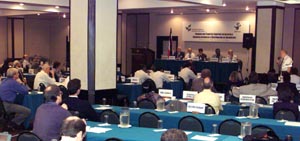 |
|
|
|
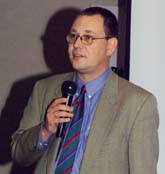 |
|
| In an afternoon Plenary session, Rapporteur Maureen Wolfson (South Africa) introduced the report of the Panel (UNEP/CBD/EP-ABS/L.1), which recalls the Panel's mandate, summarizes the opening session and organizational matters, and outlines the items addressed by the two working groups. The Plenary adopted the report without amendment. | 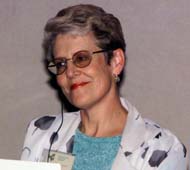 |
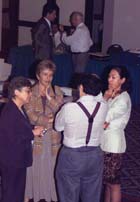 |
Panel participants outside the meeting room, waiting for the afternoon plenary to commence. The delay was caused by Working Group 2 finishing its work later than expected. |
| In the evening Plenary, Panel Co-Chair Medaglia (Costa Rica, on the right) introduced the report of the working group on ABS arrangements for scientific and commercial purposes (UNEP/CBD/EP-ABS/L.2) for consideration. He reminded the Plenary that the meeting was an expert panel, not a negotiating body. | 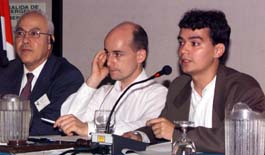 |
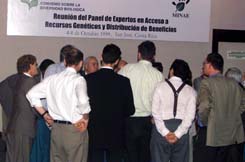 |
The Plenary initially began to adopt the report paragraph by paragraph until an observer asked for the floor and was refused. Switzerland raised as a point of order in the procedure the fact that the Plenary must first discuss the report in a general manner and allow for observer comments. Following a brief discussion (left) on the procedure for considering a working group report, it was agreed that the Plenary would first approve the report paragraph by paragraph prior to its adoption and that observer participation would be allowed. |
| In considering text noting the unique qualities of genetic resources for food and agriculture, Switzerland proposed deleting a list detailing its characteristics. FINLAND (right) preferred retaining the list, noting that the Panel should provide technical information to support its recommendations. | 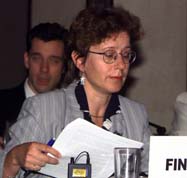 |
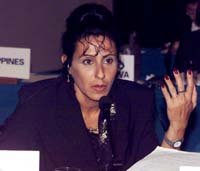 |
|
| With regard to a paragraph
noting that many countries are in the early stages of developing ABS regimes,
CUBA, supported by BOLIVIA, objected to text stating that, as a consequence,
interim solutions "are required" to allow a continuation of access in
accordance with the CBD. She noted that such a requirement contradicted
other text stating that the provision of guidelines would be premature. |
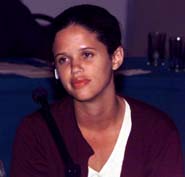 |
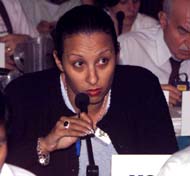 |
Delegates accepted MOROCCO's proposal to delete text limiting needs for confidentiality to "commercial purposes." |
| Argentina noted that the working group's report exceeded the acceptable length and proposed deleting explanatory boxes contained in the draft report. SWITZERLAND (right) proposed formulating an executive summary in addition to placing the boxes in annexes and asked the Secretariat to propose alternative means of formatting the report.. | 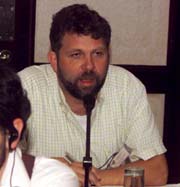 |
© Earth Negotiations Bulletin, 1999. All rights reserved.
